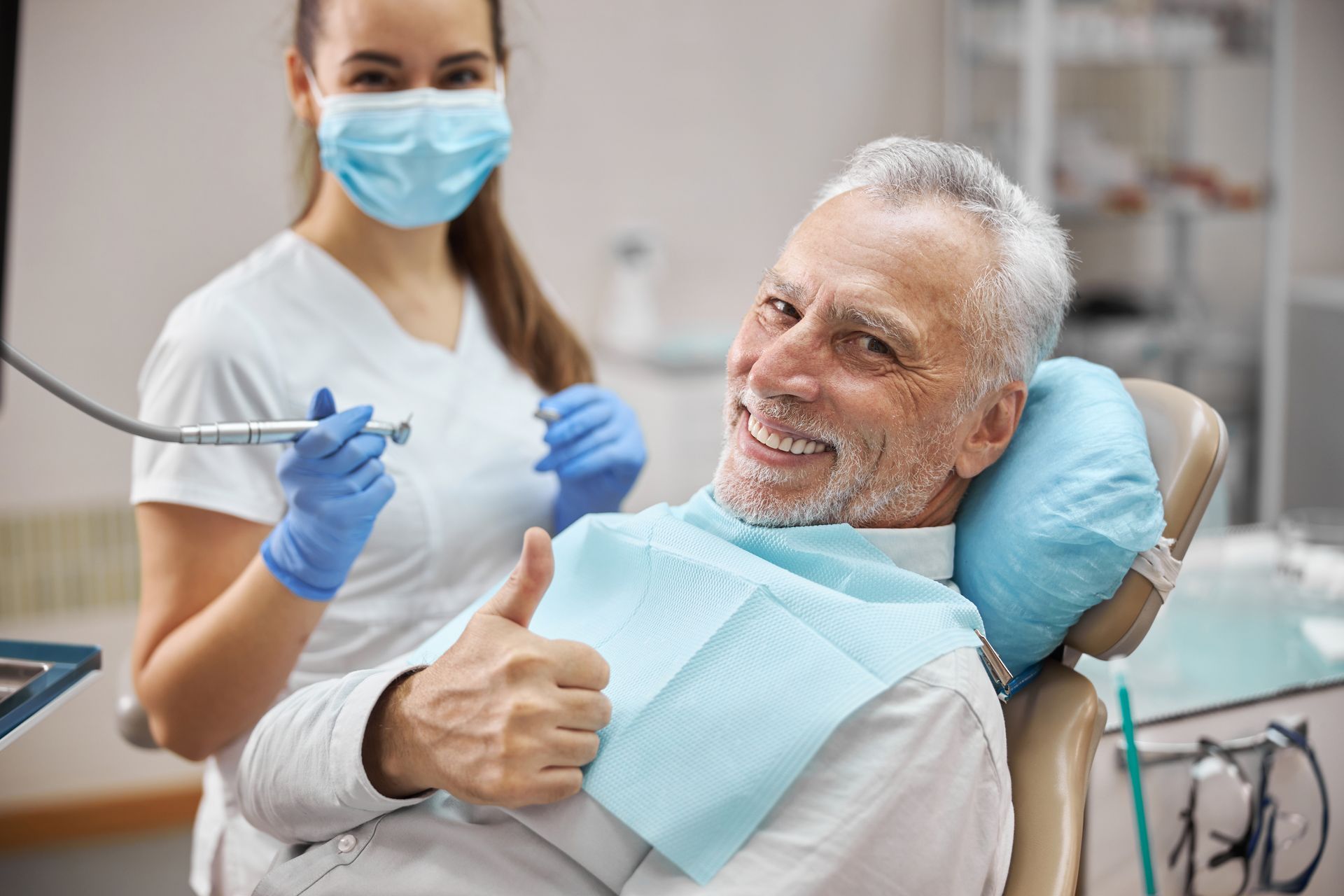Early Detection Matters: Understanding Oral Cancer Screening
In the realm of cancer, including oral cancer, early detection plays a pivotal role.

Surprisingly, around 25% of oral cancer diagnoses occur in individuals who don’t smoke. Therefore, a painless and straightforward oral cancer screening is crucial for every patient.
Importance of Screening
Oral cancer might not exhibit symptoms in its initial stages, underscoring the significance of screenings that can identify potential issues before they become visible or trigger sensations.
Recognizing Signs & Symptoms
Oral cancer can manifest in various areas of the mouth—lips, cheeks, gums, tongue, the roof of the mouth, or deeper in the throat (oropharyngeal cancer). Persistent red or white sores, resistant to healing, are common oral cancer indicators. These may appear as discolored patches or firm lumps, occasionally accompanied by pain. Identifying these sores can be challenging, making regular dental screenings critical.
Other indicators encompass throat discomfort, persistent bad breath, and mouth alterations like loose teeth or difficulty in chewing and swallowing. Should you experience any of these, prompt dental evaluation is crucial. While other conditions might share similar symptoms, an early visit significantly improves the prognosis.
Risk Factors & Diagnosis
Factors contributing to oral cancer include tobacco use (smoking, chewing), excessive alcohol consumption, poor diet, HPV (human papillomavirus), and age (increased risk after 40).
During an oral cancer screening, your dentist conducts a visual examination aided by lights, mirrors, and specialized tools to inspect areas otherwise hard to see. Advanced technology, such as special lights and rinses, enhances the examination but supplements rather than replaces traditional detection methods.
Upon completing the screening, your dentist may recommend further observations or tests, not necessarily indicative of cancer. Regular monitoring aids in early detection and better outcomes, as early-stage oral cancer boasts an 80 to 90% survival rate.
Encouraging Prevention & Action
While oral cancer can be daunting, remember that early detection and lifestyle changes significantly impact the outcome. Regular screenings and timely consultations with your dentist or hygienist are essential for proactive care.
Empower yourself with information and ensure you schedule your annual oral cancer screening with your dental care provider.







